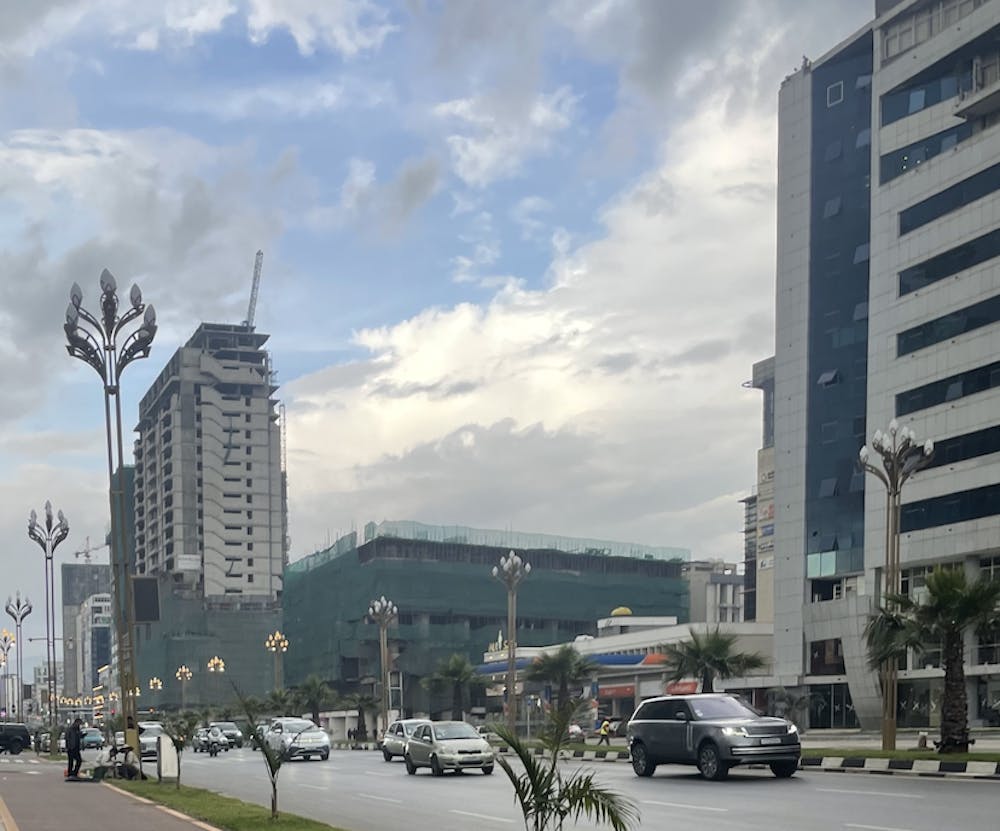Shea Littlepage is a public health researcher and Fulbright-Fogarty Public Health Fellowship recipient. She is dedicated to advancing global health through qualitative research and providing valuable insights to public health agencies. In an interview with The News-Letter, Shea discussed how her experiences at Hopkins motivated her to study health decision-making among Ethiopian experts during the COVID-19 crisis. These experiences have reinforced her commitment to combatting public health challenges through international outreach and policy analysis.
The News-Letter: What inspired you to apply for the Fulbright program, and was there a defining moment that made you commit to pursuing it?
Shea Littlepage: I wouldn't say that there was like a defining moment, but there was a lot of little things that made it good. I think the size of the project that I wanted to do was a big thing for me. I did my dissertation work through Fulbright. Specifically, I did Fulbright-Fogarty, which is something that is aimed particularly at public health projects, especially for someone who has an M.D. or is getting an M.D. or a Ph.D. My dissertation is entirely qualitative, and the amount of funding that they give is appropriate for that size of project.
Fulbright is really aimed at cultural ties. It's not, as I guess, technically research heavy as other grant opportunities are. So, it made it a good fit for qualitative research that was about getting into the context of the particular place that you were trying to do a project in. I knew a lot of people who had done it, and it gives you a lot of freedom. There are [also] a lot of people who are doing a lot of different things. You meet a lot of people who are just completely different, like very smart people who are thoughtful and very interested but are researching [topics] like fashion design. And I'm a public health student, so it's just like completely, completely different. So, you learn a lot of things. You're tied into a wide network of people.
I think the third [reason why] I went with Fulbright was this Fogarty aspect. With Fulbright, Fogarty is part of the [National Institute of Health (NIH)], so I also got a lot of the mentoring that the NIH puts through. I got the best of both worlds with this cultural, medical training and mentoring focus from Fogarty. [While it] wasn't really the focus of my project, it’s still a useful resource to have and a good structure to balance out.
N-L: Could you briefly walk me through your Fulbright project and research focus?
SL: My Fulbright project was a fully qualitative project about decision making for Ethiopian health experts during the COVID-19 emergency period and talking to them about how they made decisions that would impact policy. I started out talking to them about data and how they would use data, but it branched out into all sorts of ways that they made decisions. It was based in Addis Ababa, but I talked to a lot of people who were not based in Addis, like people who worked with UNICEF.
N-L: How has Hopkins supported your research exploration and independence?
SL: Hopkins has a scholarship office that really understands Fulbright. The public health campus’ scholarship office had a lot of expertise, gave a lot of helpful feedback for that process and walked me through the point of Fulbright, what they would want to see, where it was a good fit. At the same time they were like, “Okay, well, this is the public health part and we're not public health experts, but you should talk to public health experts about this part.” The Public Health School [then] helped me come up with ideas that weren't just repeating the same project I had done before, and it helped me really firm up some of the theory behind my ideas.
N-L: Were there any challenges you faced during your research, and how did you overcome them?
SL: There are always challenges when you do any kind of research, and I think I was extraordinarily lucky with this particular project. I didn't have any catastrophic challenges. I completed my research right before [U.S. Agency for International Development (USAID)] got shut down, so I think that was really lucky. I had a major team at Hopkins and also, in Addis, that Fogarty helped me establish. I was able to troubleshoot any problems I was having in terms of recruitment, getting around the city or day-to-day issues.
N-L: What advice do you have for students who want to apply for Fulbright or follow a path like yours in research?
SL: I would say it takes a lot of thinking. Don't be afraid by how slow [the process can feel]. It's completely okay if your day-to-day work isn't always on your main idea, because everyone has responsibilities and sometimes you must take care of other things — whether it's job responsibilities or personal care.
A lot of research is important, even if it's not exactly what you envisioned. Every project gives you valuable skills and contributes to something meaningful. Make time, even just ten minutes, to write down what you're thinking and why your idea is important. Don't lose sight of it. When you find an opportunity — whether it's Fulbright or something else that is flexible or fits your interests — go for it and see where it leads. It's incredibly rewarding to work on what you've been thinking about. Sometimes I still can't believe someone paid me to ask the questions I most wanted to ask; it's a little surreal.





